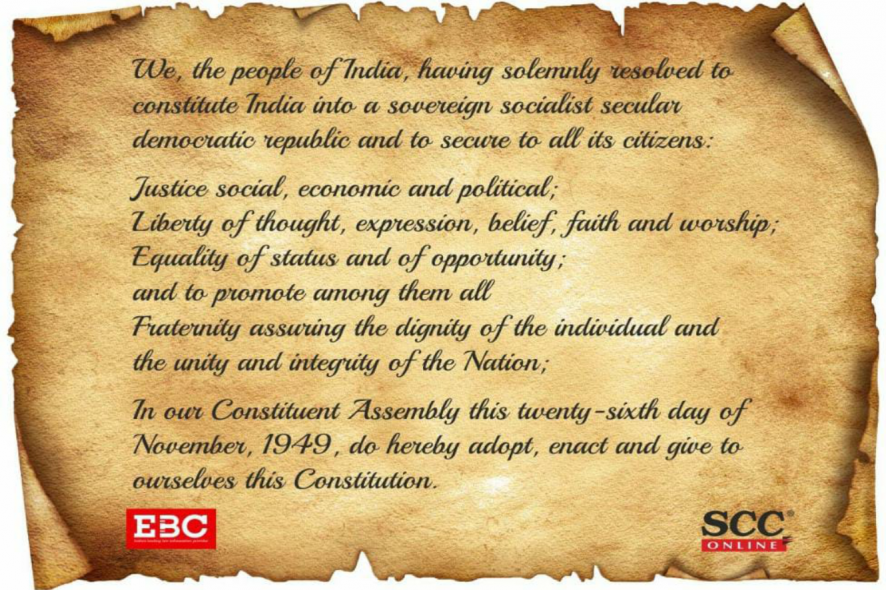Today we celebrate the day of the great occasion when the Constitution of India, crafted by great legal stalwarts like Sir B.N. Rau and political and legal stalwarts like Dr. B.R. Ambedkar, Pt. Jawahar Lal Nehru, Sardar Vallabhbhai Patel, was adopted. Sir Benegal Narsima Rau or Justice B.N. Rau, later a Judge of the International Court of Justice, did the spadework of interacting with distinguished jurists and Judges from Commonwealth countries before preparing the draft.
Today we talk in terms of the Constitution of India as being adopted by the people of India as a sovereign, socialist, secular, democratic republic. I emphasise the word “Republic”. The question arose how could we be a Republic and yet remain in the British Commonwealth. We must acknowledge the statesmanship of Pt. Jawahar Lal Nehru, who, in his effort to reconcile the status of a totally independent Republic with the President as its head, and yet wishing to continue to remain in the Commonwealth propounded the London Declaration of 1949, and persuaded Britain and other Commonwealth countries to accept his suggestion. This Declaration which I personally know, was not too popular with British constitutional experts, including my Professor at Cambridge, Professor E.C.S. Wade.
The constitutional lead by the Prime Minister of India in the international sphere was followed by many countries of the Commonwealth.
Let me now turn to 6-12-1937 when our Federal Court was established. I quote from the speech of the first Advocate General of India, Sir B.L. Mitter on that day:
“Our High Courts command the respect and confidence of the people in a larger measure than any other institution in the country. They have built up this position by their independence, impartiality, integrity. The Federal Court is the inheritor of this heritage, with wider jurisdiction, higher authority and larger scope to vindicate the supremacy of the law.”
I have no doubt that the courts, strengthened by constitutional powers conferred on them, command the respect and confidence of the people of India even more today. After more than seventy long years since these words were spoken, they ring even more true. In my view, the power which the Supreme Court has acquired slowly and quietly over the last sixty years, is an awesome power. The extent of the judicial power was not fully known or realised in the beginning. Now the Indian judiciary has acquired pre-eminence over other branches and in no other country of the world has the judiciary assumed such ascendancy as in India. This, in the absence of having neither the purse nor the sword.
READ MORE HERE
*The article has been published with kind permission of SCC Online cited as (2009) 3 SCC J-6
**Former Attorney General for India.






